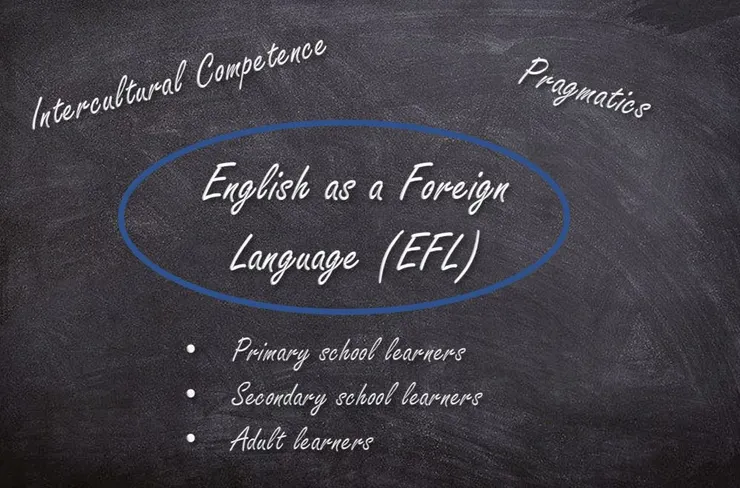
Having been exposed to various varieties of German and different foreign languages from early on in my life, I have always been interested in issues related to language and culture. I first encountered academic concepts relating to culture, intercultural competence and language in a seminar by the late Zoltan Dörnyei, who subsequently became my MA dissertation and PhD supervisor.
Due to my research focus on pragmatics and cultural issues, I was asked to develop a seminar addressing topics relevant to this field in my first full-time academic post at Lancaster University. The discussions with students from all over the world in the new seminar called "Culture and the language learner", which ran regularly from 2006 until I left Lancaster in 2012, increased my interest in the relationship between culture, intercultural competence and pragmatics even further. In addition, conversations with teachers and students on the English for Academic Purposes pre-sessional programmes that I was directing from 2006 to 2010, as well as discussions that I had with colleagues and my PhD students in Lancaster contributed to my interest in this field.
Probably as a result of these discussions, I was asked if I would like to contribute chapters on measuring intercultural competence to handbooks, which resulted in the following publications:
Following my move to Erfurt, my research first concentrated more on the new field of L2 pragmatics and young language learners. Inspired by discussions with colleagues in the department, in the language centre and at other universities, as well as with PhD students and MA students, and the relative absence of research focusing on the link between pragmatics and intercultural competence, two new research projects arose.

This project focuses on teachers of English in different educational institutions. As my research over the years has focused on primary, secondary and adult education, I am interested in investigating how teachers working in these contexts conceptualize intercultural competence.
A survey study was conducted in English and in German 2020 in which teachers of all three levels were invited to take part.
The survey featured questions addressing the following:
Findings of the survey study were published in.
Schauer, G.A. (2022). Intercultural competence and pragmatics in the L2 classroom: views of in-service EFL teachers in primary, secondary and adult education. In McConachy, T. & Liddicoat, A. (Eds.), Teaching and Learning Second Language Pragmatics for Intercultural Understanding(pp. 173-198). Routledge.
Additional publications are in progress.

This project evolved as a result of the first project, which focused on EFL teachers.
Having looked at the results of the first study, I began to wonder if the results were related to the foreign language examined and teachers of other foreign languages would have similar or different views.
In addition, I had received feedback from several teachers of foreign languages that were working with adult learners in the higher education context. The feedback suggested that there was considerable interest amongst this group of teacher to explore the issue further.
Finally, exchanges that I had with one of the editors of the book in which results from the first project were published, Troy McConachy, inspired me to explore the link between intercultural competence and pragmatics in more depth.
Data for this project were collected in 2021 via a survey designed for teachers of different modern foreign languages in higher education.
The open access monograph "Intercultural competence and pragmatics" was published in 2024.